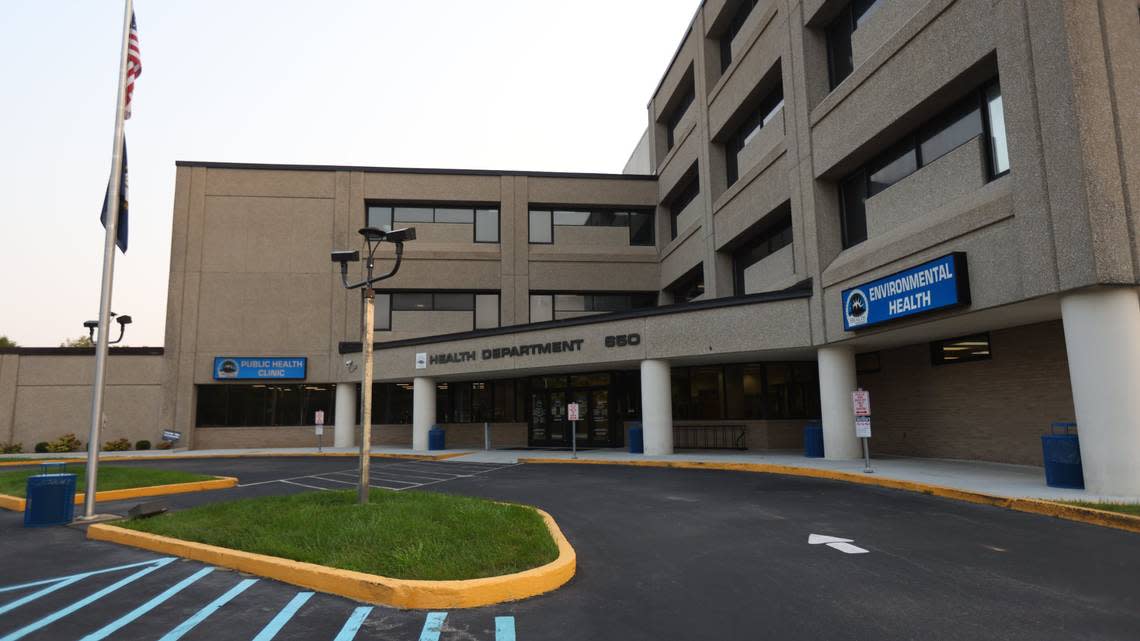Whooping cough cases jump to 24 in Lexington. How to spot symptoms for the disease

Fayette County’s whooping cough outbreak is not abating: As of June 7, there have been 24 confirmed cases since April.
“This is the most we’ve had in at least five years,” Kevin Hall, spokesperson for the Lexington-Fayette County Health Department, said Friday.
The youngest reported patient among the Fayette cases was 2; the oldest in their 80s. The three most recent cases involved children 9 and 12 years old.
One had symptoms start May 28, and the other two have been sick but just got tested and confirmed. The seven cases reported on Tuesday all had symptoms start prior to the end of the school year, Hall said.
Whooping cough (also known as pertussis) is a highly infectious bacterial disease involving the respiratory tract. It is caused by bacteria found in the mouth, nose and throat of an infected person.
What are the symptoms?
Not surprising. there’s a lot of coughing involved.
The “whooping” name comes from such intense coughing bouts that all the air has left a person’s lungs and they’re forced to inhale, triggering that “whooping” noise.
Many only think of pertussis as being the loud, violent cough, but it typically begins with a normal cough that just won’t go away.
Another tell-tale trait: A person’s tongue, lips, even their nails may burn blue during those violent coughing spells.
Also, pay attention to a fever and non-stop nasal discharge or sneezing. You also might experience watery and sore eyes.
Recognizing those early symptoms will not only help people get treatment and get better sooner, it reduces the risk of spreading pertussis to others.
How can you prevent its spread?
Experts say the No. 1 move is to ensure you’re up to date on the vaccine. The pertussis vaccine is part of the routine childhood vaccination series and is required for schools in Kentucky.
The booster vaccine, called Tdap, is recommended for ages 11 and above for protection.
The Herald-Leader reported previously some of the lowest vaccination rates for the booster Tdap are at Fayette County private schools, according to recent data.
Because the vaccine weakens over time, it’s important for older children and adults to check with doctors about additional doses. If someone hasn’t had the booster in 5-10 years, they should talk to their medical provider to see if it is needed, especially if they are around a baby or a pregnant person.
Good hygiene also can help limit the spread.
Covering your mouth and nose when you cough and sneeze is recommended. It’s also important to wash your hands frequently throughout the day with soap and water for at least 20 seconds.
If an individual or a family member has had a cough lasting longer than a week, it’s a good time to call a medical provider and ask to get tested, Hall said.
Is medicine available?
According to the CDC, Hall said, preventive antibiotics are also known as post-exposure antimicrobial prophylaxis.
These are medicines given to someone who has been exposed to harmful bacteria to help prevent them from getting sick. Some people should receive antibiotics to prevent them from getting sick if they have been around someone with whooping cough, Hall said.
He said if you’ve been exposed to someone with whooping cough, talk to a healthcare provider about preventive antibiotics. A healthcare provider or health department generally decides who should get preventive antibiotics.
Where are local cases?
Six of the seven were ages 13-17 from Bryan Station, Henry Clay and Dunbar high schools and Lexington Christian Academy middle and high schools.
The remaining case was a 2-year-old.
Before schools closed for the summer, cases of whooping cough were confirmed at Bryan Station, Henry Clay, Lafayette, Lexington Catholic and Paul Laurence Dunbar high schools, as well as Saints Peter and Paul School and Lexington Christian Academy.


